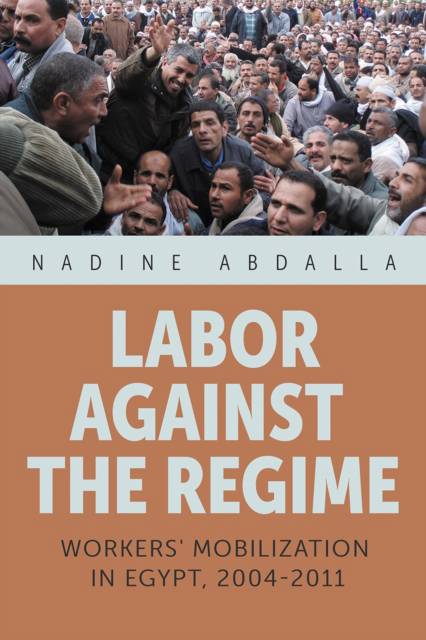
- Afhalen na 1 uur in een winkel met voorraad
- Gratis thuislevering in België vanaf € 30
- Ruim aanbod met 7 miljoen producten
- Afhalen na 1 uur in een winkel met voorraad
- Gratis thuislevering in België vanaf € 30
- Ruim aanbod met 7 miljoen producten
Zoeken
€ 118,95
+ 237 punten
Omschrijving
How do worker movements emerge and evolve under authoritarian regimes? What enables labor activists to overcome constraints and win concessions, and what leads to demobilization? Nadine Abdalla provides an inside look at two of Egypt's most significant worker protest movements in the years preceding the 2011 Arab uprisings.
Through a fine-grained analysis of the labor movement at the Misr Spinning and Weaving Company in Al-Mahalla Al-Kubra and the State Employees Movement of the Real Estate Tax Collectors, Labor Against the Regime reveals the pivotal role played by activist leaders in shaping a movement's trajectory. Drawing on extensive fieldwork, interviews, and primary sources, Abdalla traces how these movements overcame daunting odds to first take shape, achieve socio-economic demands, and ultimately challenge the Mubarak regime's corporatist control over labor relations. The book explores how activist leaders' personal backgrounds, careers, and embeddedness within movements conditioned their choices--ultimately steering protests down different pathways of contestation and institutionalization. As one of the first book-length studies to comparatively analyze Egypt's labor activism before and after the Arab Spring, Labor Against the Regime provides vital insights into the changing relationship between workers, social movements, and the pre-uprising political order.Specificaties
Betrokkenen
- Auteur(s):
- Uitgeverij:
Inhoud
- Aantal bladzijden:
- 308
- Taal:
- Engels
- Reeks:
Eigenschappen
- Productcode (EAN):
- 9780815638520
- Verschijningsdatum:
- 17/02/2025
- Uitvoering:
- Hardcover
- Formaat:
- Genaaid
- Afmetingen:
- 162 mm x 234 mm
- Gewicht:
- 571 g

Alleen bij Standaard Boekhandel
+ 237 punten op je klantenkaart van Standaard Boekhandel
Beoordelingen
We publiceren alleen reviews die voldoen aan de voorwaarden voor reviews. Bekijk onze voorwaarden voor reviews.








